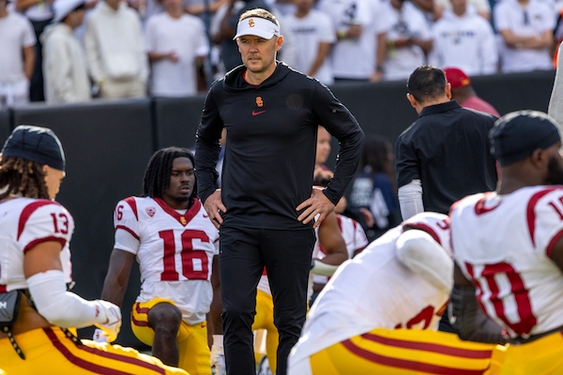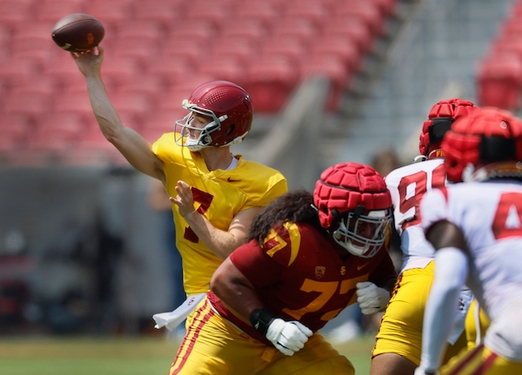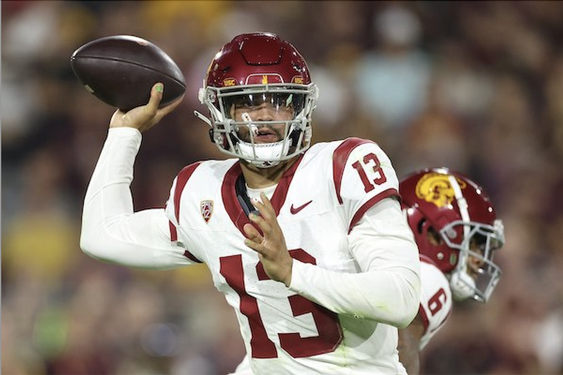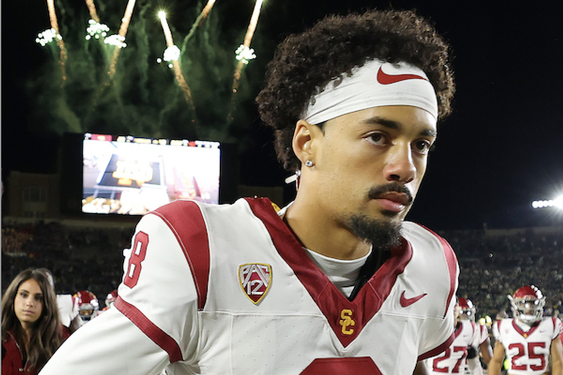Big Ten officials had already completed the complex work of piecing together a new conference schedule including two new members when the conference added two more schools in early August.
Adding Oregon and Washington a few months after USC and UCLA meant reconsidering how to handle scheduling within the Big Ten's new West Coast enclave. Should the four schools play each other every year? How should the conference balance geography with a massive 18-team rotation? Those questions were "really at the forefront of a lot of the conversations," said Kerry Kenny, the Big Ten's chief operating officer.
After two months of deliberations, the Big Ten laid out its answer Thursday, releasing a five-year plan for its conference football schedules that opted for "a more fluid rotation" over protecting annual matchups for USC and UCLA against
Washington and Oregon.
USC and UCLA will still meet every season, just as they have every year for nearly a century. But the four new Big Ten teams will only play their other West Coast conference brethren three out of every five years. For USC and UCLA, that means the prospect of seasons where they play every road game, outside of their annual rivalry, thousands of miles away.
In 2026, for example, USC's shortest road trip outside of the cross-town rivalry will be to Wisconsin. Same for UCLA in 2027.
"As we've gone through expansion here a couple times," Kenny said, "we found the integration process runs more smoothly when teams play each other more, not less."
In 2024, that means road games for USC against Maryland, Michigan and Minnesota, along with a familiar trip to Seattle. UCLA will travel to Nebraska, Rutgers and Penn State, along with the same trip to Washington.
The lure of having more longtime Big Ten teams spread across multiple time zones with regular West Coast road trips was ultimately too compelling to pass up.
"Having USC and UCLA, Oregon and Washington play games in Beaver Stadium and the Big House and Kinnick," Kenny said, "that was something we really tried to make happen. We limited the fact that the West Coast teams wouldn't play each other every year, but still there's a healthy amount of those games over five years where it keeps West Coast football as a real, predominant place for high-level football to happen."
USC coach Lincoln Riley understood it was unlikely the conference could honor West Coast ties without creating new divisions or making other major changes. All things considered, Riley said, "I don't have any serious complaints."
"I just think it was going to be almost impossible to do some type of arrangement like that with the other two West Coast schools and still get the coverage of our entire league," Riley said. "So I honestly felt like from the West Coast piece, I think they did what they needed to do. The reality is we're still going to play half of our games and in most years a little over half of our games on the West Coast, so I don't think we're going to be hurting for it here. I thought overall, I mean, it's kind of a new concept, there's a lot we're going to learn once we get into it. I think for the most part, other than some of the home-and-home or multiple away visits in a row, I thought it was pretty well done."
As part of the new plan, USC will face off with either Michigan or Ohio State in each of its first five years in the Big Ten, with the first of those matchups coming next fall in Ann Arbor.
UCLA was previously scheduled to play both of the Big Ten's flagship programs in 2024, but now won't play either next season. Instead, it will take on Indiana, Iowa, Minnesota, Oregon and USC in a decidedly less exciting home slate.
For USC, the 2024 slate looks just as intimidating as it did upon first joining the Big Ten. In addition to matchups with Michigan and Washington on the road and Penn State and Wisconsin at home, USC still has Notre Dame on its schedule. Not to mention a season opener against Louisiana State in Las Vegas.
Creating that daunting, on-paper potential was a critical part of the Big Ten's scheduling plans, Kenny said.
"From a CFP selection committee perspective, there are opportunities here where even if you lose one, two or even three games, with the quality of these schedules, it's really going to be incumbent on the committee to value that schedule, the depth of the Big Ten and really dispel the notion that a team has to be undefeated or have one loss for selection into the CFP," Kenny said.
The schedule softens a bit for USC in 2025, with its two toughest tests coming against Michigan at home and Oregon on the road. But for UCLA, home games against Washington and Penn State, as well as a road trip to Ohio State, should underscore just how rigorous the road will be through the Big Ten.
©2023 Los Angeles Times. Visit latimes.com. Distributed by Tribune Content Agency, LLC.












